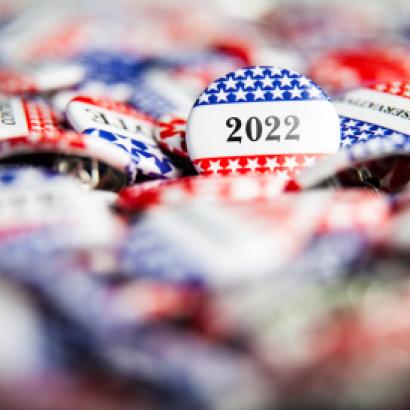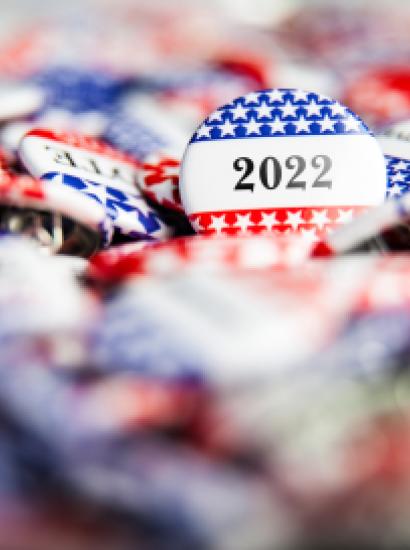- California
The aftermath of an election provides an opportunity for a conversation about winners and losers, this California-centric column being no exception.
A “winner,” if you will: aggravation. Few words better describe California’s molasses-like approach to counting votes, with some races still days (maybe weeks) away from being decided.
Why the delay? Because the California way of counting voters is the antithesis of haste. The Golden State’s official canvass isn’t due for a month after last Tuesday’s vote. Nor are the counters in high gear: under California’s Elections Code, county offices have to tally votes every day for at least six hours. But there are exceptions—the count doesn’t continue on weekends and holidays.
It gets worse: mailed-in ballots require signature verification, which is time consuming; California allows same-day voter registration, which likewise requires verifying. Hand counts are required of ballots cast in 1% of precincts. And don’t forget the “reconciliation of the number of ballots counted, spoiled, canceled, or invalidated due to identifying marks or overvotes with the number of votes counted, including vote-by-mail and provisional ballots” (those are the California secretary of state’s words, not mine).
All of which would be comical, except that California’s vote count drags on while the nation anxiously awaits clarity as to the future control of Congress—a half-dozen unresolved California House races perhaps deciding whether the Speaker’s gavel is wielded by the gentle lady from San Francisco or the gentleman from Bakersfield.
As for California “losers,” look no further than those out-of-state concerns that attempted to bring online sports betting to California in the form of Proposition 27.
At last glance, the measure garnered only 17% statewide support, which makes its failure historically awful. One has to go back to 2004 (Proposition 68, which would have required Indian casinos to pay 25% of proceeds to the state) and 1994 (Proposition 185, to raise California’s gas tax by 4%) to find previous ballot measures that failed to clear the 20% approval bar.
Futility, thy names are FanDuel, Bet MGM and DraftKings.
There’s a third category in any post-election “winners and losers” discussion, and that would be those entities that fall into both categories.
Which brings us to California governor Gavin Newsom.
At first glance, and based on California’s election results, Newsom would seem a decided “winner.” Not only did he breeze to reelection as expected (it’s now been 80 years since a first-term California governor was kicked to the curb by voters), but Newsom also got his way in the two other statewide races in which he starred in television ads—the anticipated passage of Proposition 1 (embedding abortion rights in the state constitution) and the surprisingly easy defeat of Proposition 30 (taxing multimillionaires making $2 million and above —a population of about 43,000 Californians—to advance the Golden State’s green agenda).
But if one believes that Newsom’s endgame isn’t so much another four years in Sacramento as it is four to eight years in the White House, beginning in 2025, then it wasn’t such a good night for California’s governor.
Here’s why.
Prior to election night, Newsom was one of several prominent Democrats (such as the pollster Stanley Greenberg) lamenting his party’s poor messaging and projected rejection by voters.
As Newsom told a national reporter in the lead-up to last week’s vote (a good way to cause a news splash outside California): “We’re getting crushed on narrative. We’re going to have to do better in terms of getting on the offense and stop being on the damn defense.”
But then came the election and the notable absence of an anti-Democratic “wave” sweeping the nation. As it turned out, the Democratic message—the nexus of abortion and voting rights—proved to be effective (with a few exceptions such as New York, where governor Kathy Hochul limped to a six-point victory—Democrats in New York make up just under half of the state’s electorate, with Republicans accounting for 22%—thanks to a crime-weary electorate that punished Democratic candidates; Republicans picked up four congressional seats in the Empire State).
Newsom’s second election setback: his reelection pales in comparison to that of Florida governor Ron DeSantis.
By the time California’s vote tally is completed, Newsom’s and DeSantis’s margins of victories will be similar (DeSantis’s share currently is a shade under 60%, while Newsom’s currently weighs in at 58.3%, keeping in mind that numbers will bounce slightly as votes continue to be counted.
However, DeSantis’s landslide came in a state where his party has a mere 2% edge in voter registration (versus Democrats outnumbering Republicans in the Golden State by a two-to-one margin), and he steamrolled an opponent who was a sitting Democratic congressman and a former governor (granted, a repeat party switcher), whereas Newsom ran against a mostly unknown Republican state senator.
There’s one other metric that now works to Newsom’s disadvantage: postelection, his party’s maybe not so eager to move on to a younger standard-bearer given that the soon-to-be-octogenarian President Biden has avoided a crushing defeat. That’s not the case with DeSantis, who emerged from his victory with Republicans insiders openly hoping for a 2024 run (and DeSantis stoking that sentiment with a victory speech that sounded much like a national stump speech).
Newsom, on the other hand, didn’t enjoy the same postelection bump. Instead, if indeed he harbors presidential aspirations, he now has to wait for Biden to decide whether he’ll seek a second term (Biden could drag out the speculation deep into 2023 if he so chooses).
And there’s the not-so-trivial matter of how Newsom would circumvent Vice President Kamala Harris. One sign of a possible clash on the horizon: Second Gentleman Doug Emhoff reportedly telling Democratic audiences that the party must rally around his spouse if Biden decides not to seek a second term.
One final note: fortunes can change rapidly in American politics—just ask former California governor Gray Davis, recalled from his job in October 2003, just 11 months after securing a second term. It was only two weeks ago that the prevailing narrative in American politics was that the midterms represented a bad campaign cycle for Democrats. Postelection, the narrative now says it’s Republicans who are in a world of hurt (and for one Californian, congressman Kevin McCarthy, the question is whether he can muster enough votes to become the next House Speaker much less shepherd a fissured Republican caucus).
Put another way: things can move fast.
Unless you’re counting votes in California.

















